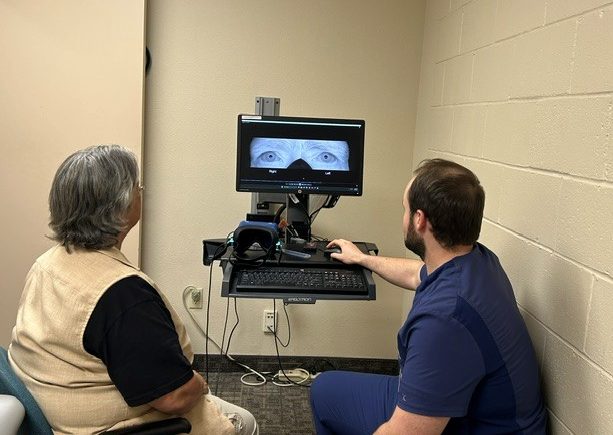Does your nose look red, your head is spinning and you’re feeling as congested as holiday traffic? One moment you are chillin’ like Frosty, and the next you’re as warm as a chestnut roasting on an open fire? Either you drank too much eggnog, ate too many latkes, or flu season has arrived. Dr. Dan Brennan, board-certified pediatrician at Sansum Clinic, now part of Sutter Health, explains the best ways to prevent and treat the flu.
Common Symptoms of Influenza

Pediatrician Dr. Dan Brennan
Influenza classically presents with the rapid onset of high fever, chills, body aches, headache, fatigue, and dry cough. Respiratory symptoms usually follow, such as a sore throat, nasal congestion, and a runny nose.
You may also suffer from red eyes, stomach pains, nausea and vomiting. In young infants, influenza may come with complications such as croup, bronchiolitis, dehydration, pneumonia, or hospitalization.
Unlike the common cold, influenza can cause high spiking fevers lasting for up to five days, and you may feel like you were run over by a reindeer. Some people may take several weeks to recover their energy and feel like themselves.
Influenza is no joke!
Grandma’s Chicken Soup and Other Remedies
The treatment of influenza is largely about keeping someone comfortable. Drinking fluids will help maintain hydration, while Tylenol or ibuprofen will help control fever and muscle aches.
Over-the-counter cough and cold remedies may also help you feel more comfortable but will not help you recover any faster.
Rest is essential. Scientific studies have actually shown that your grandmother’s chicken soup really is effective, and it tastes great, too.
If diagnosed in the first 48 hours of symptoms, your doctor may recommend an antiviral medication, such as Tamiflu. If started early enough, Tamiflu may reduce the duration of symptoms by several days and make you less contagious to others.
Tamiflu may also be given to close contacts as a way of preventing influenza once there’s been an exposure.
Since influenza is a viral infection, antibiotics will not be effective in the treatment of primary influenza infection. If a secondary bacterial infection develops, such as an ear infection or pneumonia, your doctor may prescribe an antibiotic to help treat the bacterial infection.
Listen to Your Mom
How many times has your mom told you to cover your mouth and nose when you cough and sneeze, and to wash your hands after you blow your nose? Either your mom was formerly the head of the CDC, or she is just very smart.
It turns out that influenza is spread by microscopic droplets from coughing and sneezing and from direct contact with snot and saliva. Frequent handwashing is an effective way to minimize contagiousness to others.
A person is most contagious 24 hours before the onset of symptoms and during their most symptomatic periods.
Shedding of the virus in nasal secretions (contagiousness) can continue for at least a week, sometimes longer in small children.
The incubation period is generally one to three days from the time a person is exposed to the time that the fevers and aches begin.
Get Your Flu Vaccine
Depending on the year and the strains of influenza that are circulating, the flu vaccine may be up to 80 percent effective in preventing influenza.
Traditional targets for the flu vaccine include individuals with chronic medical conditions. It is now recommended that everyone 6 months and older receive the flu vaccine.
The effectiveness of the flu vaccine has not been established for children younger than 6 months of age, so it is strongly recommended that all close contacts and family members receive the flu vaccine to help keep their young children better insulated from exposure.
Other recommended high-risk groups include the elderly, pregnant women, breastfeeding moms, close contacts of high-risk individuals, and anyone else who takes care of children.
Children younger than age 9, who are receiving the flu vaccine for the first time, are encouraged to return for a booster shot one month after the first dose to establish a stronger immune response.
It’s never too late to get the flu vaccine, so get one today if you can.
Can the Flu Shot Cause the Flu?
No! The flu shot does not cause the flu.
Ahhh-Choooo
Remember that not all coughs, sneezes, aches and vomiting are caused by influenza. You may still catch other types of respiratory infections other because the flu vaccine only protects against influenza.
If you want to prevent illness, remember to cover your mouth and nose, wash your hands frequently, stay home when you are sick, get your flu vaccine, and thank your grandmother for her delicious chicken soup.
NOTE: This content is not intended to be a substitute for professional medical advice, diagnosis or treatment. Always seek the advice of your physician or other qualified health provider with any questions you may have regarding a medical condition. Never disregard professional medical advice or delay in seeking it because of something you have read on this website.





